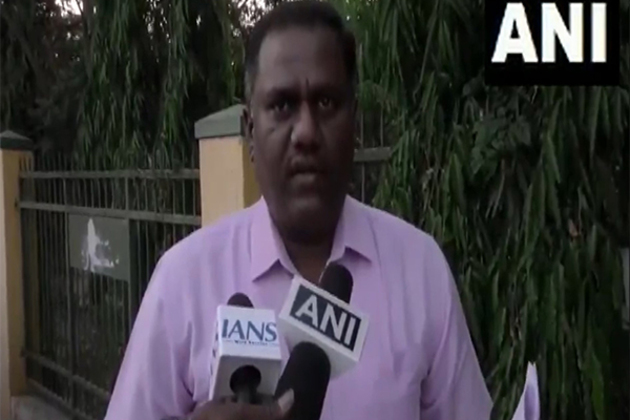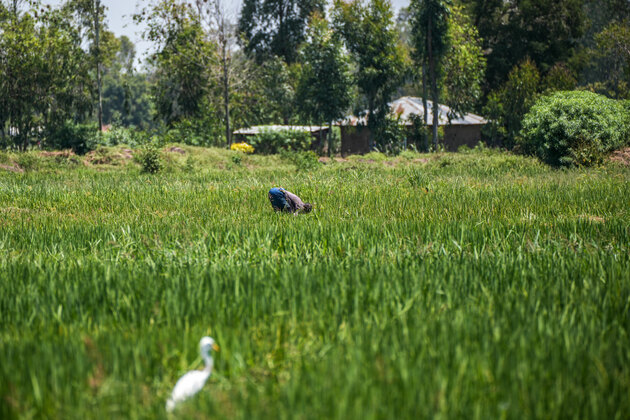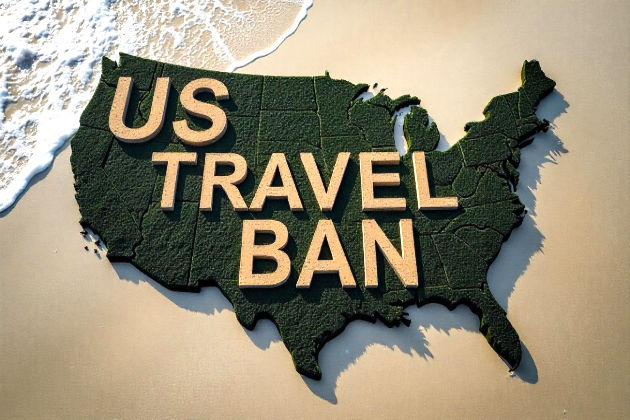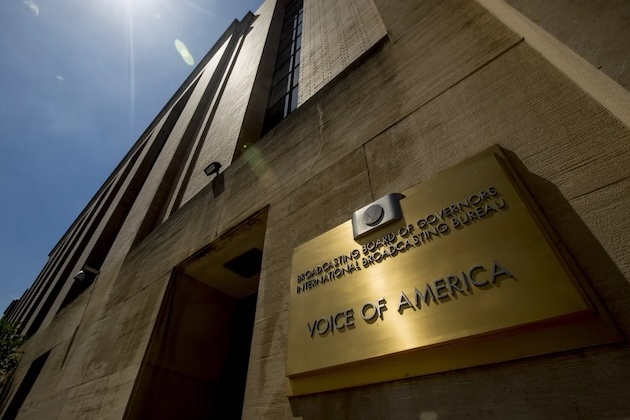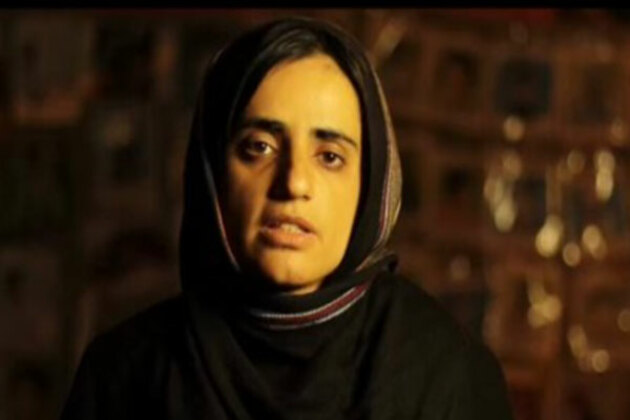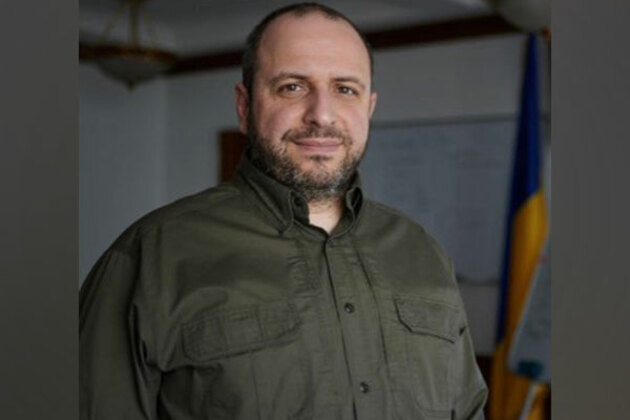Nigeria offers free caesareans to save mothers' lives - but it's not enough
The Conversation
23 Mar 2025, 04:34 GMT+10
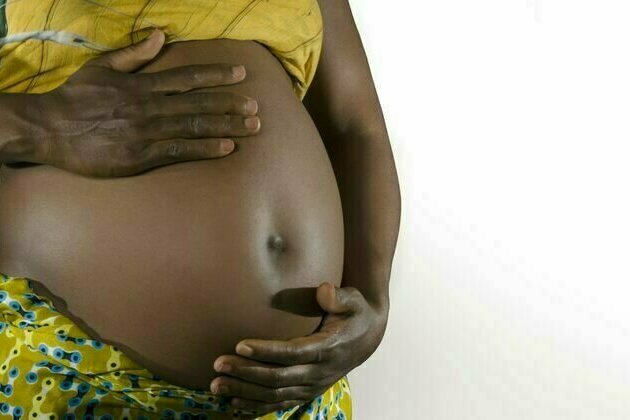
Nigeria's government launched an initiative in 2024 offering free emergency caesarean sections to poor and vulnerable women, in a plan to bring down the high number of mothers dying in childbirth.
Aduragbemi Banke-Thomas, a maternal and newborn health researcher, and Itohan Osayande, a teaching fellow in public health, discuss the initiative and how it can achieve its objectives.
Of the 287,000 pregnant women who died in 2020, almost a third were from Nigeria. At 1,047 deaths per 100,000 live births, Nigeria has the third highest maternal mortality rates globally. This is behind South Sudan and Chad.
The leading causes of maternal deaths are severe bleeding, infections, high blood pressure during pregnancy and unsafe abortions. These deaths are mostly preventable if pregnant women get emergency obstetric care, including caesarean sections.
There are several factors.
At an individual level, there is evidence that women delay seeking care, for various reasons. The cost of care and lack of awareness of danger signs are among them. There are also cultural norms that advise against lifesaving measures like caesarean section.
There are also issues related to Nigeria's healthcare system. Research shows that women don't always get the care they need when they get to a health facility. This might be because health facilities do not provide care as women cannot afford to pay. For others who cannot pay but receive care, some are unlawfully detained in the health facility until they pay. Other shortcomings include ineffective referral systems and a shortage of skilled healthcare professionals. In recent years, there has been a sharp increase in health professionals migrating to other countries.
Inability to pay means that some women do not even seek care in health facilities. They end up delaying presentation at health facilities or going to traditional birth attendants, putting them and their unborn babies at risk of complications and death.
Beyond the healthcare system, other factors include poor roads to care. Many pregnant women in Nigeria are left to travel to health facilities on their own even in an emergency. In rural areas, women face long travel distances to reach the nearest hospital.
Also, conflict displaces pregnant women and their families from their homes and disrupts access to healthcare.
The initiative aims to increase health facility use and skilled birth attendance by 60%. It also aims to reduce maternal mortality by 30% within three years.
It recognises that Nigeria's maternal mortality challenge is multi-faceted and only a multi-pronged approach can tackle it. It also recognises that though it is a national problem, solutions need to be driven at sub-national levels.
The scheme includes a suite of community-centred interventions to be implemented starting in the 17 states that contribute over half of the maternal deaths reported in Nigeria. These include:
empowering community-level leaders in Ward Development Committees to track and encourage pregnant women to use maternity services in primary health centres
advocacy by prominent people to promote safe delivery practices
partnering with traditional birth attendants to refer pregnant women to health facilities
revitalising the national emergency medical service and ambulance system
the offer of free caesarean sections for poor and vulnerable women.
The offer of free caesarean sections generated a lot of interest in the global community when it was announced.
Pregnant women have to be enrolled in Nigeria's national health insurance scheme to access free caesarean sections.
This is a double-edged sword.
Linking eligibility to health insurance registration offers the federal government and health facilities an opportunity to recoup some costs to sustain the free initiative. Nigerians who have health insurance pay a premium monthly.
However, those who are indigent and cannot afford a caesarean section are mostly not subscribed to the insurance scheme. Before the 2022 National Health Insurance Authority Act, which made health insurance mandatory for all citizens and legal residents, nationwide registration on a health insurance scheme was only 3%. Most of the subscribers work in the formal sector. However, only 19 in 100 Nigerians had health insurance in 2024.
Some African countries have taken steps to improve access to lifesaving maternal healthcare interventions, including caesarean section, by removing user fees.
Examples are Benin, Burkina Faso, Ghana, Kenya, Mali, Morocco, Niger, and Senegal.
Though evidence on the impact of free caesarean section policies on reducing maternal mortality is not conclusive, there are now higher rates of caesarean section, particularly among women from lower-income, rural and less educated backgrounds.
Free delivery and caesarean section policies in Ghana and Burkina Faso led to a 45% reduction in the neonatal mortality rate and 54% reduction in infant mortality rate compared to Nigeria and Zambia where no such policies existed. This suggests that the benefits of such schemes go beyond pregnancy and childbirth.
There are lessons from countries that have implemented similar schemes.
"Free" caesarean without free delivery may lead to more women being identified as needing a caesarean, since the vaginal childbirth might come at a higher cost to the pregnant woman. While a caesarean can be lifesaving, unnecessary surgeries are not advised, as it is not risk-free. Making both vaginal childbirth and caesarean "free" should be considered.
Free needs to truly mean free. Stockout of medications, blood and blood products, and consumables might force people to pay to get them.
Skilled health personnel must follow clear guidelines to assess whether a caesarean is necessary or not. Audit and feedback on the use of the procedure will help in identifying any patterns of abuse or misuse.
There's a need to stem the tide of emigrating doctors and nurses so that those who can perform the procedure are in the facilities when pregnant women need care.
The Nigerian government will need to explore innovative financing mechanisms to sustain the policy. With the recent funding cuts and withdrawals in foreign aid from the US, help is unlikely to come from outside.
Giving verified private sector providers incentives to buy into the scheme should also be considered.
The scheme should also be extended to women on community-based health insurance schemes, which are more likely within the financial reach of poorer families.
Its implementation needs to be evidence-based and adaptable for the scheme to succeed.
 Share
Share
 Tweet
Tweet
 Share
Share
 Flip
Flip
 Email
Email
Watch latest videos
Subscribe and Follow
Get a daily dose of Kenya Star news through our daily email, its complimentary and keeps you fully up to date with world and business news as well.
News RELEASES
Publish news of your business, community or sports group, personnel appointments, major event and more by submitting a news release to Kenya Star.
More InformationAfrica
Section22 members of Hakkipikki tribal community fined in Gabon for allegedly having fraudulent documents
Davanagere (Karnataka) [India], March 24 (ANI): Twenty-two members of the Hakkipikki tribal community from Channagiri taluk of Davangere,...
Musk slams South Africa over 'white genocide'
The close adviser to US President Donald Trump has also reiterated that Pretoria won't allow his Starlink service to operate in the...
Wealthy Africans often don't pay tax: the answer lies in smarter collection - expert
Faced with some of the worse debt levels in over a decade, African countries are struggling to find ways to balance their books. Increasing...
African safaris and colonial nightmares: a visit to artist Roger Ballen's latest show
Born in the US, Roger Ballen, the internationally renowned photographer, has lived in South Africa since the 1970s. He gained a...
Nigeria offers free caesareans to save mothers' lives - but it's not enough
Nigeria's government launched an initiative in 2024 offering free emergency caesarean sections to poor and vulnerable women, in a plan...
BRI Stories | Chinese-built irrigation project transforming Kenyan farmers' livelihoods
(250322) -- NAIROBI, March 22, 2025 (Xinhua) -- A farmer works in a field benefited from the Lower Nzoia Irrigation project in Siaya...
World
SectionUS weighs broad travel ban covering dozens of countries
WASHINGTON, D.C.: The Trump administration is considering strict new travel restrictions for citizens of dozens of countries, according...
US cuts VOA funding, puts 1,300 staff on leave
WASHINGTON, D.C.: The U.S. government has placed more than 1,300 Voice of America (VOA) employees on leave and slashed funding for...
Russia and US begin talks on Ukraine conflict
The negotiations in Saudi Arabia will focus on maritime security in the Black Sea Senior Russian and US officials have started talks...
Baloch Human Rights Council urges UN intervention amid ongoing repression in Pakistan
London [UK], March 24 (ANI): The Baloch Human Rights Council (BHRC) has called for the urgent intervention of the United Nations Secretary-General...
Ukraine Defence Minister Rustem Umerov calls meeting with US "productive" ahead of peace talks
Riyadh [Saudi Arabia], March 24 (ANI): Ukrainian Defence Minister Rustem Umerov shared details of the meeting held with the United...
PAKISTAN-ISLAMABAD-REPUBLIC DAY-CELEBRATION
(250324) -- ISLAMABAD, March 24, 2025 (Xinhua) -- Jets perform aerobatic maneuvers during the Republic Day military parade in Islamabad,...

